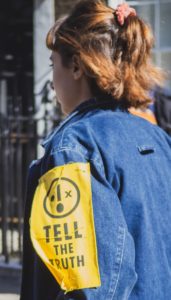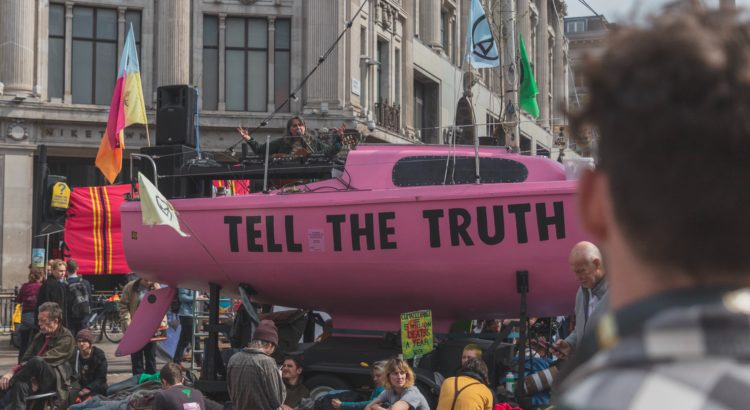Level A2 and above
The verbs say and tell are very similar, but say is more about expressing something, and tell is more about informing or instructing someone.
Make sure you understand the difference.
By Benedicte Gravrand, English language trainer at The Language House
Example:
Mary: Where’s John. He said he was coming to the party.
John: That’s funny, he told me he had an important meeting. He said he wouldn’t be here until 9pm.
Mary: He didn’t tell me that. He doesn’t always tell the truth, does he? He often says one thing and does something else.
Say (said, said): used for all sorts of speech.
- ‘Turn right,’ I said.
- She said it was my last chance / She said that she liked dancing. (indirect/reported speech)
- He said that he would be late (NOT He said me)
- Has he said who is coming? (indirect question)
- Alice said a naughty word this morning (object is: a word/name/ phrase…)
- And I say to all the people of this great country… (to before personal object)
- I’ve already said sorry for hurting his feelings. (say sorry)
- The committee said yes. (say yes/no (give or refuse permission))
- I want to say something on this subject. I want to say something about this house. (on/about).
- The castle is said to be (belief/opinion)
- Say you get £2,000 for the car – you’ll still need another thousand. (imagine what will happen if…)
Tell (told, told): used to mean ‘instruct’ or ‘inform’. After tell, we usually say who is told, for example: he only told one person where the money was.
- ‘Turn right,’ I told him.
- She told me (that) it was my last chance (indirect/reported speech)
- ‘What time is the meeting?’ ‘I’ll tell you’
- I promise to tell the truth, the whole truth, and nothing but the truth. (no personal object here)
- Grandpa tells wonderful stories about the old days. (tell stories)
- I’m not asking you – I’m telling you! (order)
- He’s lying. I can always tell.
To subscribe to our blog, leave your email address
(right-hand side column),
and confirm your subscription by email.
Music
Say It Ain’t So Joe, by Murray Head
Say and tell phrases
There are many phrases with say and tell. Here are just a few of them:
- Having said that: add an opinion that seems to be the opposite of what you have just said, although you think both are true
It’s expensive. Having said that, I must admit that it is very well made.
- I wouldn’t say no (to something): you would like something, especially something that has been offered to you
I wouldn’t say no to another piece of cake.
- (just) say the word: you are ready to do something for someone
We can go whenever you like. Just say the word.
- go without saying (that): completely obvious or true
It goes without saying that I’m sorry.
- that’s/it’s easier said than done: telling someone that what they are advising you to do is not easy to achieve
He told me not to worry, but that’s easier said than done.
- that’s not saying much: emphasize that something is not very unusual, surprising, or impressive
It’s better than the old one, but that’s not saying much.
- I couldn’t tell you: you do not know the answer to a question, especially when you do not want to be helpful
‘What time will he be back?’ – ‘I couldn’t tell you.’
- I told you (so): you warned someone that something bad would happen and you have now been proved right
I told you it wouldn’t work.
See, it broke! I told you so.
- tell it like it is: to give the real facts about something, even if they are unpleasant
You can always rely on Jane to tell it like it is.
- tell me about it: you already know about something unpleasant that someone has just described because you have experienced it yourself
‘I’m so overworked.’ ‘Tell me about it!’
- to tell (you) the truth: what you really think or feel
To tell you the truth, I’m completely bored.
- you never can tell: it is impossible to be certain about something
You can never tell how long these meetings will last.
* Definitions and examples from MacmillanDictionary.com

Say and tell exercise
Complete the dialogue between a man and a police inspector with say or tell (conjugated).
- MAN: The police officer … me to stop when I leaving the bank.
- INSPECTOR: What did he …?
- M: He …, “You’re under arrest.”
- I: And what did you …?
- M: To … you the truth, I can’t remember what I …. I panicked.
- I: Do you know why you are here?
- M: I couldn’t … The officer didn’t … me why I was arrested.
- I: You are a prime suspect in a bank robbery.
- M: What? I was never …! What are you …?
- I: You were carrying a bag full of cash. One million dollars’ worth.
- M: I’m … you, this bag was not mine. And old man … me to carry it to his car because it was too heavy for him. I … I would.
- I: Where is the old man now? Can you … me?
- M: I couldn’t … He disappeared as soon as the police officer showed up.
- I: What can you … me about him? … me what happened exactly?
- M: This old man was waiting at the door inside the bank, with the bag on the floor. He also … he would give me a tip for the service.
- I: Really? What else?
- M: I … I wouldn’t … no to a tip, especially since my bank account is completely empty.
- I: Can you describe him?
- M: He was wearing a black beret. And he had a beard.
- I: That’s not …
- M: Having … that, I think now he probably wasn’t that old.
- I: How can you …?
- M: He looked quite fit. But you can never ….
- I: Appearances can be deceiving. Did he … you where his car was parked?
- M: He … the car was a black BMW and that it was parked right outside the bank.
- I: And did you see the car?
- M: No, I didn’t have time to check. I was arrested as soon as I stepped out!
Check your answers
- MAN: The police officer told me to stop when I leaving the bank.
- INSPECTOR: What did he say?
- M: He said, “You’re under arrest.”
- I: And what did you say?
- M: To tell you the truth, I can’t remember what I said. I panicked.
- I: Do you know why you are here?
- M: I couldn’t tell The officer didn’t tell me why I was arrested.
- I: You are a prime suspect in a bank robbery.
- M: What? I was never told! What are you saying?
- I: You were carrying a bag full of cash. $1 million worth.
- M: I’m telling you, this bag was not mine. And old man told me to carry it to his car because it was too heavy for him. I said I would.
- I: Where is the old man now? Can you tell me?
- M: I couldn’t tell He disappeared as soon as the police officer showed up.
- I: What can you tell me about him? Tell me what happened exactly?
- M: This old man was waiting at the door inside the bank, with the bag on the floor. He also said he would give me a tip for the service.
- I: Really? What else?
- M: I said I wouldn’t say no to a tip, especially since my bank account is completely empty.
- I: Can you describe him?
- M: He was wearing a black beret. And he had a beard.
- I: That’s not saying
- M: Having said that, I think now he probably wasn’t that old.
- I: How can you tell?
- M: He looked quite fit. But you can never tell.
- I: Appearances can be deceiving. Did he tell you where his car was parked?
- M: He said the car was a black BMW and it was parked right outside the bank.
- I: And did you see the car?
- M: No, I didn’t have time to check. I was arrested as soon as I stepped out!


